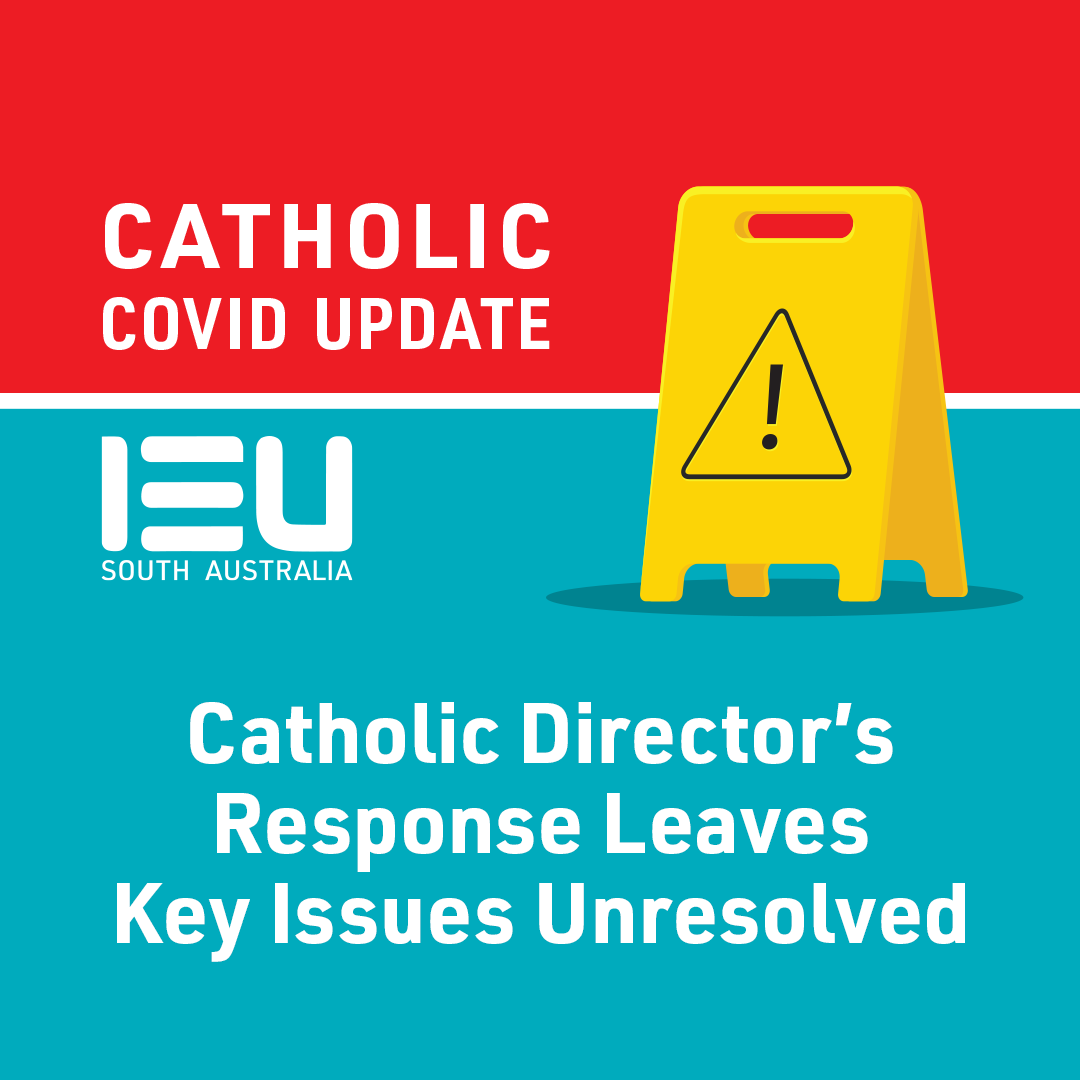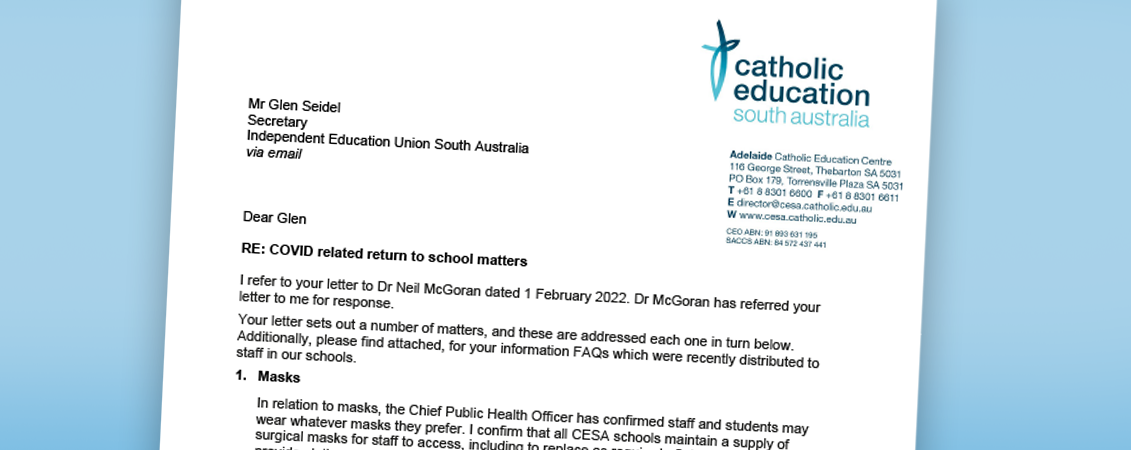Catholic Director’s Response Leaves Key Issues Unresolved

Whilst acknowledging the timely and detailed response to the IEU’s letter of 1 February, there was no movement from the CEO on problematic positions.
Masks are a settled issue with the acknowledgement that the employer would not be relying on the issuing of reusable cloth masks, but would have stocks of surgical masks for staff who chose to use them.
RATs for surveillance testing or ‘test to stay’ are being supplied by the government and schools should have their supplies by now. It is important to recognise that the ‘test to stay’ arrangement for classroom close contacts does not apply to ESOs without the required classroom contact. That however was not an employer decision.
It is pleasing to see re-confirmed that “teachers are not expected to work in ‘dual mode’”. That means that if the class is being conducted face-to-face, there is no requirement to also deliver the lesson online for those students who can’t or won’t attend.
The response concerning ventilation and air purifiers indicates that some purifiers have been purchased and rolled out, but they would be deployed in areas “with low ambient air quality” or “insufficient ventilation”. If members believe that to be the situation in the worksite, then raise the issue with your Organiser and elected HSR (if you have one).
No progress has been made yet on the granting of leave for COVID isolation, even when associated with the workplace. If, because of a COVID-related issue at work, one is sent home, then there should be no detriment to the person’s pay or accrued entitlements.
The Department for Education has provision for 15 days paid special leave for COVID but the CEO is refusing to agree to anything like ‘Pandemic Leave’ in the new enterprise agreement on the grounds that they want to keep things in policy which can be more flexible. They also refuse to add COVID to the list of infectious diseases on the grounds that it is in the community as well. The IEU maintains the infectious diseases clause will apply when there is a connection with the workplace “in all probability”. Proof does not have to be 100%.
This places the Catholic employers at odds with the Independent Schools where the advice is to utilise the infectious diseases clause. As much as the granting of discretionary paid special leave is of benefit to some members, it disadvantages those with a small balance which will be wiped out and not available for other situations in the future. There should be an additional entitlement for all staff.
Vulnerable workers and pregnant women need special consideration, but the employer responses are particularly disappointing. For generally vulnerable people (or those with vulnerable people at home) the choice is to stay home and use leave or leave without pay. For pregnant women wishing to access the legislated ‘No Safe Job Leave’ the answer is that “working in schools is not inherently unsafe”.
The Enterprise Agreement Bargaining Team will continue to negotiate the infectious diseases and pandemic leave clauses, but is likely to need direct member support to bring any changes.
Vulnerable workers and pregnant worker ‘No Safe Job Leave’ cases will be pursued on a case by case basis as will any refusals to grant infectious diseases leave.
Read the full response via this link


